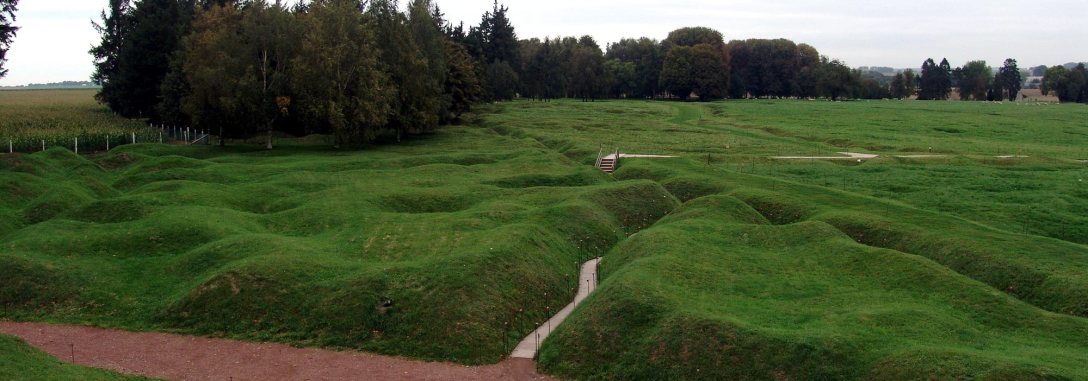Homily preached at Evensong at Christ Church
Greenwich, Connecticut
October 7, 2018 / 20th Sunday after Pentecost
100th Anniversary of the Death of Sir C.H.H. Parry
Hosea 13:4-14
1 Corinthians 2:6-16
The text of tonight’s anthem – a poem by Henry Vaughan – was published in 1650, at the very height of the English Civil War. For faithful Anglicans who lived through it, the execution of Charles I, the abolition of the monarchy, and the suppression of the Church of England was a political and religious calamity without parallel. Centuries later, Hubert Parry set Vaughan’s text to music… in 1916, at the height of another social and religious calamity that was, for those who lived through it, also without parallel: the first World War, or as it was known in its day, the Great War.
Vaughan’s poem, at its original publication, was entitled “Peace,” and it is not incidental that Parry should have picked it as a subject for an anthem. By 1916, a number of Parry’s pupils at the Royal College of Music had died in the fighting. As one scholar of the war has noted, by this time, in England, “people perceived that that war… was going to extend itself into hitherto unimagined reaches of suffering and irony.”[1]
Given such a background, Vaughan’s words of nearly 270 years before must have seemed “meet and right” indeed:
My Soul, there is a country
Afar beyond the stars,
Where stands a wingèd sentry
All skillful in the wars;
There, above noise and danger
Sweet Peace sits, crown’d with smiles,
And One born in a manger
Commands the beauteous files.
Vaughan’s words evoke images… images of God’s promised future for his people, and these are articulated not as mystical, inner visions but as a concrete reality, one that exists “afar beyond the stars,” and which can only be perceived spiritually.
In tonight’s second lesson, St Paul writes, We speak of these things in words not taught by human wisdom but taught by the Spirit, interpreting spiritual things to those who are spiritual.
Being spiritual for St Paul doesn’t mean putting in a lot of human effort, through eating right, staying positive, cutting out the bad energy. “The Spirit that teaches understanding to… Christians is not some kind of spirit of field, forest, and meadow, nor is it a natural magic potency that produces enthusiasm; rather, it is the spirit of the crucified Christ,” writes one scholar.[2]
Henry Vaughan understood Paul’s words very well. “Peace,” as in the peace of God, peace is not an Adirondack chair overlooking a lake, although that’s a very nice place to be; “Peace” is a kingdom where “above noise and danger… / One born in a manger / Commands the beauteous files.” Peace is defined not by its location, but by the commanding presence of Jesus Christ.
He is thy gracious friend
And (O my Soul awake!)
Did in pure love descend,
To die here for thy sake.
The spiritual reality “beyond the stars” – once perceived – provides a perspective from which to judge present conditions, for Vaughan, for Parry, and for us: Vaughan uses the phrase “foolish ranges” to describe the moral content of what he saw in his day. Parry saw it, and we can see it in our time as well. Who here has not experienced disappointment, illness, broken relationships, and stubborn pride? But as Vaughan knew, and as St Paul knew, such foolishness is not the final word.
The future is known to those who are alive in Christ not through human wisdom, but “taught by the Spirit.” For Paul, “the truth about God is revealed not through philosophy but through prophecy, not through rhetoric but by revelation.”[3] It is found in Scripture, as taught by the apostles and the saints. And at the center of it all stands the Cross, stands the flag planted by God in a world of war and suffering, towering over the ages as the sign and symbol of Christ’s victory over sin and death, and his deliverance through his own death and resurrection of the whole world – even you, and even me.
Vaughan’s poem echoes biblical calls to repentance, including Jesus’ own command to repent, for the kingdom of God is at hand.[4] There is a promise implied there – that if the times call for repentance, then the kingdom must be at hand – and therefore in the midst of tumult and dysfunction and fear, there is occasion for hope and thus for perseverance. The act of repentance, the renunciation of the world’s distractions, becomes the activity that enables endurance.
Like Vaughan, and like Parry, we live our lives in the midst of things that are passing away. And yet as Christians we are anchored to the Cross, to the symbol of God’s decisive vindication of his creation, and his promise of a future of peace everlasting.[5] There is a country, far beyond the stars, which we shall see at the latter day, where Jesus Christ will stand beside us. And,
If thou canst get but thither,
There grows the flow’r of peace,
The rose that cannot wither,
Thy fortress, and thy ease.
Leave then thy foolish ranges,
For none can thee secure,
But One, who never changes,
Thy God, thy life, thy cure.
Amen.
[1] Paul Fussell, The Great War and Modern Memory (Oxford: Oxford University Press, 1975), 3.
[2] Wolfgang Schrage, Der erste Brief an die Korinther (Zürich [etc.]: Benziger [etc.], 1991), 267.
[3] Richard B. Hays, First Corinthians (Louisville: John Knox Press, 1997), 46.
[4] Mark 1:15
[5] Crux Mihi Ancora is the motto of the Diocese of Rhode Island, where this preacher was ordained.
